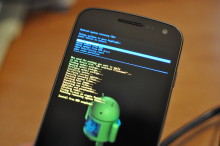Data-wiping malware targets Europe
Shamoon—the mysterious disk wiper that popped up out nowhere in 2012 and took out more than 35,000 computers in a Saudi Arabian-owned gas company before disappearing—is back. Its new, meaner design has been unleashed three time since November. What's more, a new wiper developed in the same style as Shamoon has been discovered targeting a petroleum company in Europe, where wipers used in the Middle East have not previously been seen.






































































